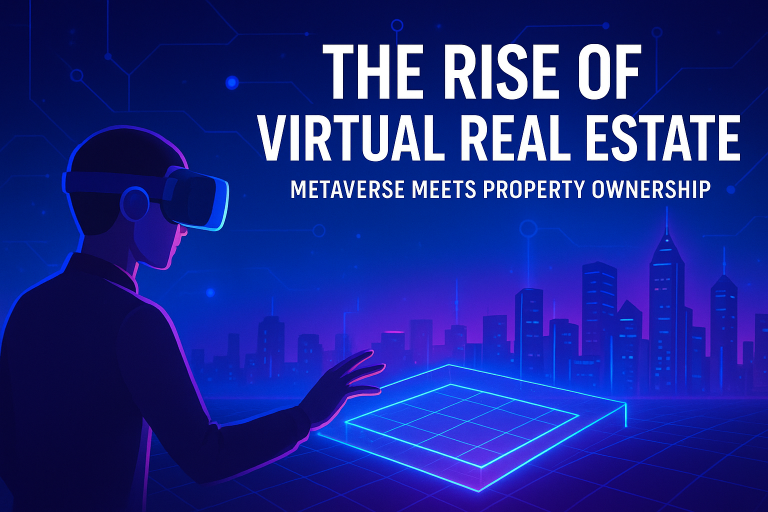The Rise of Virtual Real Estate in the Metaverse
The metaverse is gradually evolving into a real-world extension of the real estate market, so it is no longer merely a futuristic idea. Investors, businesses, and even conventional developers are drawn to virtual real estate, or digital plots of land within metaverse platforms, because they see its potential as the next big thing in real estate ownership and interaction.

The Significance of Virtual Real Estate
Possessing land in the metaverse opens up possibilities that go well beyond online speculation. Both people and companies can create immersive experiences, hold exhibitions or concerts, open branded showrooms, or even set up virtual offices. Big international companies are already using these areas to create digital-first communities and improve customer engagement. Investors, on the other hand, are placing bets on appreciation since, similar to physical property, virtual land is scarce, which drives value.
Similarities to Real Estate
Virtual real estate adheres to well-known concepts from the physical market, although it is fully digital. Plots in popular online communities with lots of traffic or famous owners command high prices, much like real estate in in-demand locations like Manhattan or South Mumbai. A distinct but similar ecology to traditional real estate is being shaped by demand, scarcity, and changing use cases.
Combining the Real and Virtual Worlds using Hybrid Models
The emergence of hybrid real estate models is among the most intriguing trends. Developers are exploring with “digital twins,” which are metaverse mirror images of physical properties. Before committing in person, potential purchasers might virtually tour a house or workplace to examine the layouts and interiors. The combination of online and offline real estate is changing marketing tactics and improving the purchasing experience.
Global Trends and India’s Inclusion
With platforms like Decentraland, The Sandbox, and Otherside at the forefront, metaverse land has already attracted billions of dollars in investments worldwide. Although the idea is still in its infancy in India, early adopters—from real estate developers to tech entrepreneurs—are starting to investigate its possibilities. There are several options, ranging from residential communities intended for networking and collaboration to virtual malls that house brands.
The Prospects for the Future
Although virtual real estate is yet purely speculative, its quick uptake indicates that it could eventually be a useful addition to real estate investments. This dual approach, which combines a virtual address in the metaverse with real properties in Mumbai, may provide innovative investors with stability.
Contact Upgrade Realty to learn how your real-world investments can align with the exciting opportunities of virtual real estate in the metaverse.
